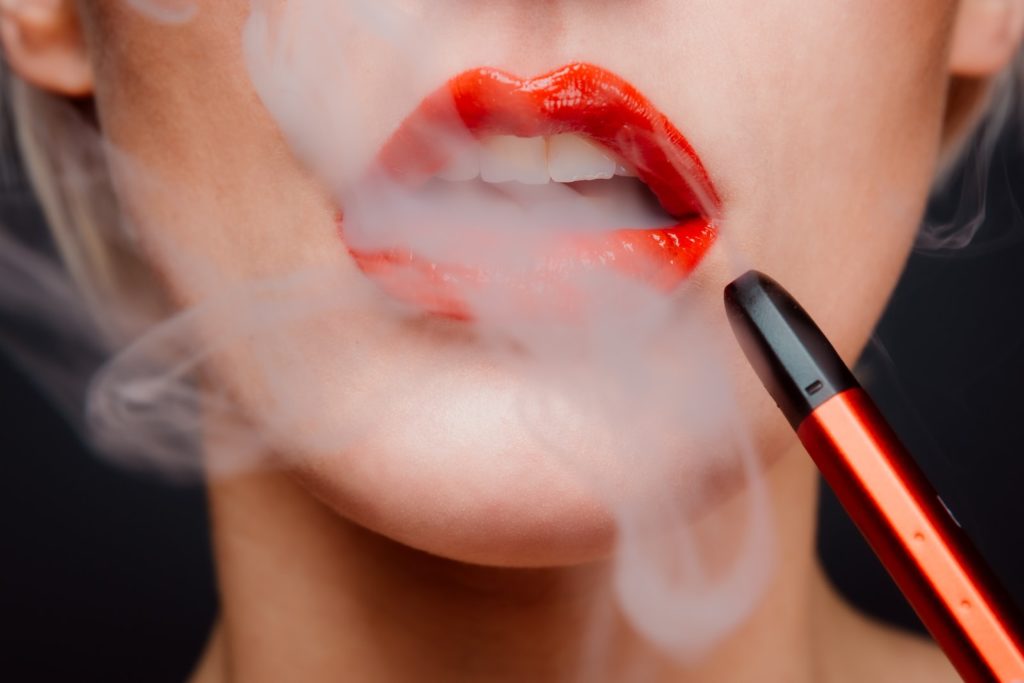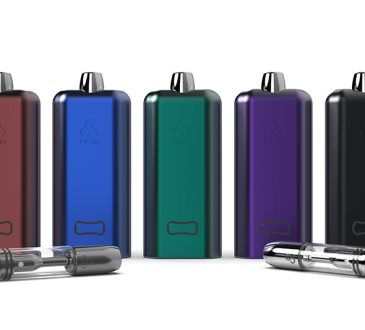A study focusing on oral health examined 110 smokers who had switched to vaping and reported significant improvements in gum bleeding.
Dr. Affan Saghir, owner of Space Dental, a luxury cosmetic dental clinic in the UK, recently emphasized the importance of avoiding both tobacco and vaping products for maintaining a healthy smile. While the impact of vaping is still a subject of debate, the negative effects of combustible tobacco are widely acknowledged. Experts in the field unanimously agree that the teeth of smokers are less white compared to those of non-smokers. Researchers Riccardo Polosa, an award-winning researcher and Professor of Medicine and Founder of CoEHAR at the University of Catania, and Giovanni Zucchelli, a professor of Periodontology at the University of Bologna, conducted a study titled “Repeatability of dental shade by digital spectrophotometry in current, former, and never smokers” to delve deeper into this issue.
The study analyzed and compared the color differences of teeth between smokers and non-smokers. The Italian researchers discovered that the teeth of smokers were significantly less white than those of non-smokers.
Upon contacting Dr. Polosa to discuss the topic, he explained that, in his opinion, addressing smoking cessation from an aesthetic standpoint could be effective, especially among younger smokers who prioritize aesthetics. He stated, “We all agree that an aesthetic-based narrative would convincingly resonate among young smokers. The notion of improvement in dental whiteness could drive thousands of young smokers away from combustible tobacco!”
Dr. Polosa highlighted three crucial points emerging from the study:
- The findings demonstrate that the teeth of current smokers are noticeably less white compared to non-smokers’ teeth. Moreover, after quitting smoking, teeth whiteness improves.
- Aesthetic considerations may serve as a compelling motivation to quit smoking, particularly for young smokers who perceive bad breath and teeth appearance (due to tooth discoloration and tobacco stains) as significant issues.
- The use of tar-free nicotine delivery technologies such as electronic cigarettes or heated tobacco products is likely to improve dental appearance. Ongoing international research coordinated by CoEHAR will soon provide definitive results.
Another Italian observational study conducted at the Unit of Periodontology and Oral Hygiene of Calabrodental Clinic in Crotone analyzed the oral health of 110 smokers who had recently switched to vaping. At the beginning of the study, 61% in group 1 and 65% in group 2 experienced gum bleeding. However, upon re-examination at the end of the study, 92% and 98% respectively experienced no bleeding.
Studies suggesting that vapes have a negative impact on dental health
In contrast, earlier this year, the CareQuest Institute for Oral Health®, a non-profit organization focused on improving the national oral health system, released a report highlighting several oral health risks associated with the use of e-cigarettes.
According to the report, these health risks include gum disease, dental decay, bone loss, and hairy tongue. The paper emphasized the need for medical professionals to educate their patients about these risks. However, it did not compare the relative benefits for users when they switch from smoking cigarettes.
Another relatively recent study raised concerns about the sugar content of e-liquids and its potential to promote tooth cavities. The study, titled “A comparison of the caries risk between patients who use vapes or electronic cigarettes and those who do not,” was published in the Journal of the American Dental Association. The research team analyzed the association between vaping and the risk of developing cavities and found that vapers had a higher risk compared to non-vapers.
Similarly, dentists in North Carolina have reported observing an increase in tooth and gum problems among young people who vape. These problems include chronically dry mouth, increased risk of tooth decay, sore gums, teeth grinding, and tooth decay, as mentioned by Dr. Anbec DeShield-Mayes, owner of BestMouth Dental in Greensboro. Dentists recommend rehydration measures such as drinking plenty of water, brushing twice a day, and flossing for patients who are new vapers or have switched from smoking to vaping.
Furthermore, a study published in JAMA Network Open warned that people who vape may be at risk of developing gum disease. Titled “Tobacco Use and Incidence of Adverse Oral Health Outcomes Among US Adults in the Population Assessment of Tobacco and Health Study,” the study utilized data from the National Institutes of Health (NIH) to examine the associations between the use of combustible tobacco products, electronic nicotine delivery systems (ENDS), and the development of oral health problems like gum disease. The research team found associations between current use of combustible tobacco and adverse oral health outcomes, as well as links between current use of ENDS and bleeding after brushing or flossing.
Australian dentists have also expressed growing concerns about the effects of vaping on their patients’ oral health. They have observed issues such as stained teeth, gum disease, bad breath, tooth decay, and injuries caused by exploded devices. Principal surgeon Michael Cai from Pitt Street Dental Centre highlighted that the negative impact of vaping is as serious as that of smoking. He mentioned a case where an explosion resulted in the breakage of two lower front teeth, leading to costly dental implants. Additionally, some e-liquids contain components that can stain teeth, such as pink dye in watermelon-flavored liquids, according to Dr. Cai. The extent of the damage caused by vaping is challenging to measure, as noted by Australian Dental Association spokeswoman Sue Ching-Yeoh.
Inaccuracies concerning vaping and dental health have proliferated
The Independent British Vape Trade Association (IBVTA) has responded to an inaccurate article linking vaping to gum disease that was recently published in The Times newspaper. The article titled “Elf bars and me: I am a vaping addict, so will I get gum disease?” contains misleading claims, including the assertion that using one disposable vape is equivalent to consuming the nicotine content of 45 cigarettes. The IBVTA clarified that the UK legal limits allow a maximum of 2 milliliters of liquid and 20 milligrams of nicotine per milliliter, totaling 40 milligrams of nicotine. Compared to the average nicotine content of 10-12 milligrams in a tobacco cigarette, it is evident that the figure of 45 cigarettes is inaccurate. The IBVTA stated that a more accurate comparison would be around 4 cigarettes.
The article also refers to unsubstantiated claims made by teenagers on social media videos, linking vaping to gum disease. Professor Linda Bauld, a public health expert at Edinburgh University, criticized the article, stating that it demonstrates how not to write a health-related article and emphasizes the importance of consulting experts who have conducted research on the topic. She described the article as “unusually poor” from The Times.
Similarly, four dental experts from Newcastle University’s School of Dental Sciences have countered inaccuracies propagated by two food science lecturers from Cardiff Metropolitan University School of Sport and Health Science. The lecturers made claims about vaping causing tooth damage. In response, Dr. Richard Holliday, Professor Elaine McColl, Anthony Weke, and Zella Sayeed published a letter in the British Dental Journal, explaining the inaccuracies.
The experts highlighted that UK public bodies, including the NHS, disregard the World Health Organization’s advice and support vaping, as they recognize that it does not erode teeth or lead to gum disease. They advised UK dental professionals to refer to well-considered public health guidance, which concludes that for the best chances of quitting smoking, individuals should use support and pharmacotherapy, and e-cigarettes can be a part of that cessation package.
The experts also pointed out that the two authors of the inaccurate claims cited a WHO poster incorrectly and wrongly claimed that nicotine poses a high risk of oral and whole-body health complications. They emphasized that nicotine replacement therapy (NRT), such as patches and gum, has been safely used for over 30 years. The experts concluded that UK dental professionals should refer to the reliable public health guidance, which explicitly supports the use of support and pharmacotherapy, including e-cigarettes, for smoking cessation.
Context is key
In conclusion, numerous medical professionals, oral health practitioners, and smoking cessation experts emphasize the relative benefits of vaping for smokers who find it challenging to quit without assistance. It is widely agreed that non-smokers should not take up vaping. However, due to the established relative safety of vaping products, transitioning from smoking to vaping reduces health risks for smokers and contributes to improved oral health.





